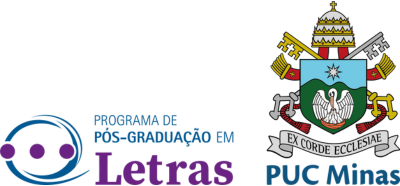Ensino de Língua Portuguesa: ensinar o quê, para quê, por quê? Uma problematização à luz dos relatos de Estágio Supervisionado de graduandos em Letras
DOI:
https://doi.org/10.5752/P.2358-3428.2023v27n59p31-66Palavras-chave:
Ensino de língua portuguesa, Relatos docentes, Estágio supervisionado, Gêneros textuais, Modos de organização do discursoResumo
O ensino de Língua Portuguesa sofre injunções diversas (teórico-metodológicas, legais, etc.) e beneficia-se dos avanços em pesquisas no âmbito da Educação, em ciências de interface (Psicologia, Neurociência, Etnografia) e dos estudos disciplinares – como a Linguística Textual, a Linguística Aplicada. Nesse cenário, o presente artigo evidencia análise preliminar de um corpus constituídos por 35 relatos, de 43 graduandos em Letras de um Instituto Federal (Ifes), no bojo da disciplina Estágio Supervisionado I (2020). Além das escolhas teóricas em relação ao próprio Estágio (como PIMENTA; LIMA, 2012), à metodologia prevalente, a sequência didática (SCHNEUWLY; DOLZ; 2004, 2011) e ao aporte do âmbito da Linguística (MARCUSCHI, ROJO, KOCH; ELIAS, entre outros), variadas nuances despontam. Há predileção por gêneros escritos (33 relatos) x dois trabalhos com gêneros orais. Entre os primeiros, 28 optaram por intervenções sobre gêneros textuais diversos (sobretudo fábula e crônica), em detrimento do ensino de tópicos gramaticais. Os modos de organização dos relatos (CHARAUDEAU, 2019) evidenciam a prevalência da narratividade e da argumentatividade, em movimentos que visam a justificar escolhas, informar procedimentos, emitir posicionamentos, aduzir argumentos para comprovar teses.
Downloads
Referências
ANASTASIOU, Léa das G. C.; ALVES, Leonir P. (Org.). Processos de ensinagem na universidade: pressupostos para as estratégias de trabalho em aula. 10 ed. Joinville, SC: Editora Univille, 2015.
ANTUNES, Irandé Costa. Análise de textos na sala de aula. Elementos e Aplicações. In: MOURA, Denilda. Língua e Ensino: Dimensões Heterogêneas. Alagoas: UFAL, 2000.
BAKHTIN, Mikhail M. Estética da criação verbal. Trad. Maria E.G. Pereira. São Paulo: Martins Fontes, 2003.
BECHARA, Evanildo. Moderna Gramática Portuguesa. 38. ed. Rio de Janeiro: Nova Fronteira, 2015.
BENVENISTE, Émile. Problemas de Linguística Geral II. São Paulo: Pontes, 1989.
BORTONI-RICARDO. Stella M. Leitura e mediação pedagógica. São Paulo: Parábola, 2012.
BRASIL. Ministério da Educação e Cultura. Parâmetros Curriculares Nacionais (PCN). Brasília, 1998
BRASIL. Base Nacional Comum Curricular: Educação Infantil e Ensino Fundamental. Brasília: MEC/Secretaria de Educação Básica, 2017.
CHARAUDEAU, Patrick. Linguagem e discurso: modos de organização. São Paulo: Contexto, 2019.
DIONISIO, Angela Paiva; MACHADO, Anna Rachel; BEZERRA, Maria Auxiliadora. Gêneros textuais & ensino. São Paulo: Parábola Editorial, 2010.
DOLZ, Joaquim; SCHNEUWLY, Bernard. Gêneros orais e escritos na escola. 3ª Ed. Campinas, São Paulo: Mercado de Letras, 2011.
DOLZ, Joaquim.; NOVERRAZ, Michélle.; SCHNEUWLY, Bernard. Sequências didáticas para o oral e a escrita: apresentação de um procedimento. In: DOLZ, J.; SCHNEUWLY, B. e colaboradores. Gêneros orais e escritos na escola. Trad. e Org. de R. R. e G. S. C. SP: Mercado das Letras, 2004.
EMEDIATO, Wander. A Enunciação Comunitária dos Gêneros do Discurso. In: EMEDIATO, W.; MACHADO, I. L.; MENEZES, W. (Org.). Análise do Discurso: gêneros, comunicação e sociedade. Belo Horizonte: NAD, UFMG, 2006.
FREIRE, Paulo (1998) Pedagogia do Oprimido. 25ed. Rio de Janeiro: Paz e Terra, 1998.
KOCH, Ingedore Villaça; ELIAS, Vanda Maria. Ler e Compreender: os sentidos do texto. 3ª ed. São Paulo: Contexto, 2018.
KOCH, Ingedore Villaça; ELIAS, Vanda Maria. Ler e Escrever: estratégias de produção textual. 3ª ed. São Paulo: Contexto, 2018.
MACHADO, Ida L. Uma das possíveis aplicações da Semiolinguística: estudo de caso sobre o fenômeno da resiliência. In: EMEDIATO, W.; MACHADO, Ida L.; LARA, Gláucia M.P. (Org.). Teorias do Discurso. Novas Práticas e Formas Discursivas. São Paulo: Pontes, 2020.
MAINGUENEAU, Dominique. Discurso e Análise do Discurso. Trad. Sírio Possenti. São Paulo: Parábola, 2014.
MARCUSCHI, Luiz Antônio. Produção textual, análise de gêneros e compreensão. São Paulo: Parábola Editorial, 2008.
MARCUSHI, Luiz A.; XAVIER, Antonio C. Hipertexto e gêneros digitais: novas formas de construção de sentido. 3. ed. São Paulo: Cortez, 2010.
MOITA LOPES, Luiz Paulo da. Práticas narrativas como espaço de construção de identidades sociais: uma abordagem socioconstrucionista. In: RIBEIRO, B. T.; LIMA, C.; DANTAS, M. T. (Org.) Narrativa, identidade e clínica. Rio de Janeiro: IPUB, 2001.
NEVES, Maria Helena M. Gramática na escola. São Paulo: Contexto, 1990.
ORLANDI, Eni Puccinelli. Texto e discurso. Organon, Revista do Instituto de Letras da UFRGS. v. 9, n. 23, 1995. Disponível em: https://seer.ufrgs.br/organon/article/view/29365/18055.
PIMENTA, Selma Garrido. O estágio na formação de professores: unidade, teoria e prática? São Paulo: Cortez, 1994.
PIMENTA, S. G. LIMA, Maria Socorro Lucena. Estágio e Docência. 7ª. ed. São Paulo: Cortez Editora, 2012.
ROJO, Roxane. Letramentos múltiplos, escola, e inclusão social. São Paulo: Parábola Editorial, 2009.
PEREIRA, Selma L. A.; SIMÕES, Alex C. (Org.). Estágio Supervisionado em Letras: relatos de experiência no Ensino Fundamental II. São Carlos: Pedro & João Editores, 2020. 229 p.
PEREIRA, Selma L. A.; BARROS, Ev’Ângela B. R. de. “Os modos de dizer do/no relato de experiência do Estágio Supervisionado em Letras: um acontecimento discursivo e dialógico”. Congresso Internacional de Formação de Professores. Anais... UFBA/UNEB. nov. 2022.
VOLÓCHINOV, Valentin. A interação discursiva. In: VOLÓCHINOV, V. Marxismo e filosofia da linguagem: problemas fundamentais do método sociológico na ciência da linguagem. Trad.: Sheila Grillo; Ekaterina Vólkova Américo. 2. ed. São Paulo: Editora 34, 2018.
Downloads
Publicado
Como Citar
Edição
Seção
Licença
O envio de qualquer colaboração implica, automaticamente, a cessão integral dos direitos autorais à PUC Minas. Solicita-se aos autores assegurarem:
- a inexistência de conflito de interesses (relações entre autores, empresas/instituições ou indivíduos com interesse no tema abordado pelo artigo), e
- órgãos ou instituições financiadoras da pesquisa que deu origem ao artigo.
- todos os trabalhos submetidos estarão automaticamente inscritos sob uma licença creative commons do tipo "by-nc-nd/4.0".


 Português
Português English
English Español
Español
 Italiano
Italiano






